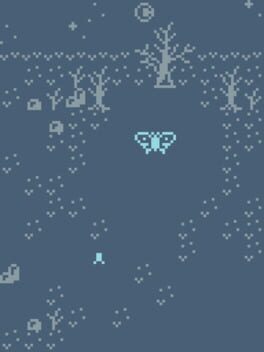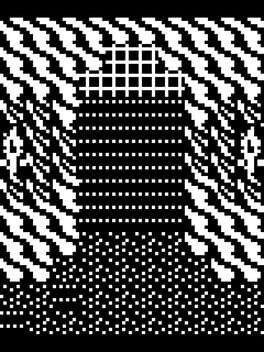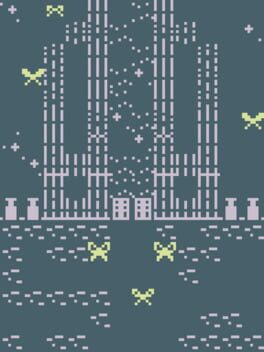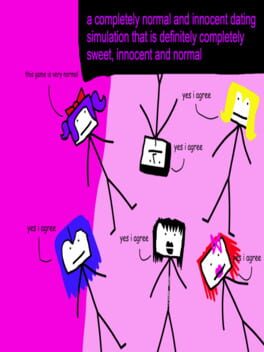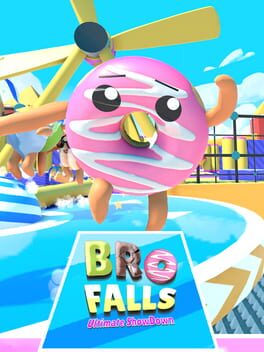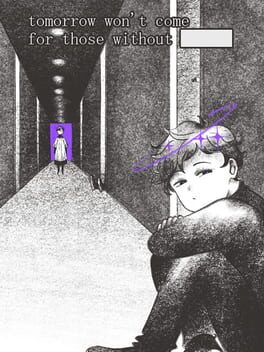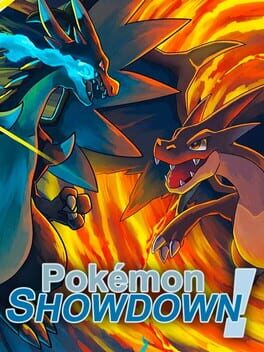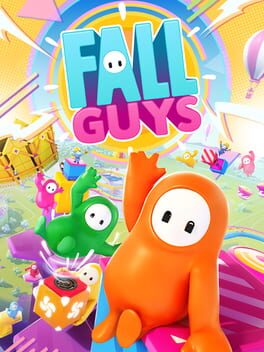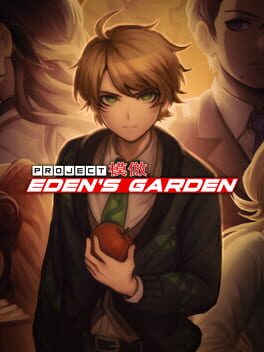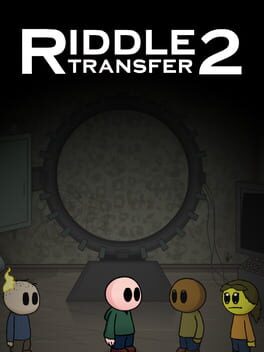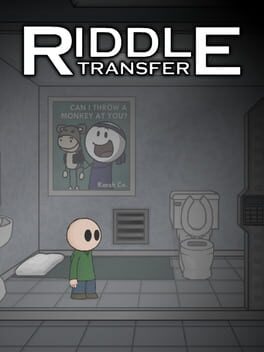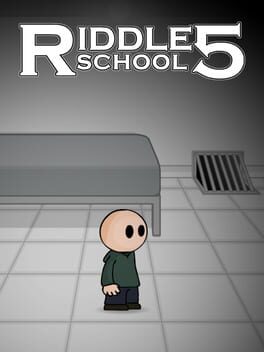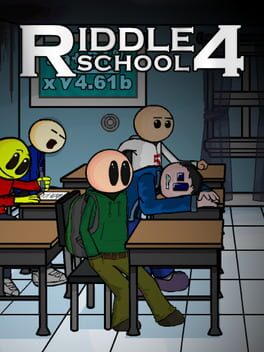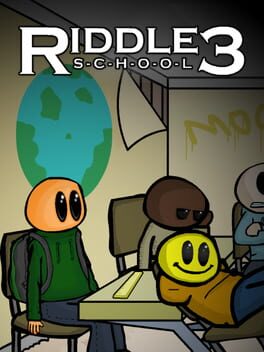hereweare
1996
This is my second review for this game. The first one is available here; I'm writing a new one because I feel like there's too many comparisons, too much saying it is good for merely being what other golf games are not. And while it is true that this game is the exception in the horrible genre that is golf games, using such a framework doesn't sell you at all into the searing complexity of this world or the beautiful way all these little interlocking systems cascade together to make every stroke and every hole an exciting and fresh ordeal.
The first time you play a Neo Turf Masters game after the tutorial, starting with any course not all the features are there. It begins as just feeling out the different clubs and the controls. But eventually, wind is added. Then grain, then increasingly more difficult and involved holes. There is obviously one goal - to get the ball in the hole - but the level design makes it so much more; will you glide along the fairway or will you take a complete crackshot? Will you aim low and risk the bounces or will you shoot to the sky and submit your ball to the wind? From the first stroke all of these possibilities spread out infinitely and the joy in revelling in them is unmatched. "Addictive" is a term I like to avoid in games as much as I can help it, but this game has utterly cast a spell on me.
Any game can make winning feel good, but it takes a great game to make losing feel good and Neo Turf Masters does it in spades; it's genuinely been a very long time since I've discovered a game with as thrilling a minutae and as elegant building of systems to make every action maximally engaging as Neo Turf Masters.
Sorry if this review is rambly, this game really does sweep me off my feet
The first time you play a Neo Turf Masters game after the tutorial, starting with any course not all the features are there. It begins as just feeling out the different clubs and the controls. But eventually, wind is added. Then grain, then increasingly more difficult and involved holes. There is obviously one goal - to get the ball in the hole - but the level design makes it so much more; will you glide along the fairway or will you take a complete crackshot? Will you aim low and risk the bounces or will you shoot to the sky and submit your ball to the wind? From the first stroke all of these possibilities spread out infinitely and the joy in revelling in them is unmatched. "Addictive" is a term I like to avoid in games as much as I can help it, but this game has utterly cast a spell on me.
Any game can make winning feel good, but it takes a great game to make losing feel good and Neo Turf Masters does it in spades; it's genuinely been a very long time since I've discovered a game with as thrilling a minutae and as elegant building of systems to make every action maximally engaging as Neo Turf Masters.
Sorry if this review is rambly, this game really does sweep me off my feet
2017
2017
It was a day like any other, I was just relaxing on my computer, after a long day... when suddenly I get a Steam invite from out of the blue from a stranger! Bro Falls: Ultimate Showdown... as an alumnus of both Fall Guys and Stumble Guys, even the name Bro Falls seemed a bridge too far to me, another weird name trying at the same time to have a similar cadence to Fall Guys: Ultimate Knockout and to be unique as a game name. In any case, I downloaded it, and watched the opening cutscene as the game came to life. A man is grocery shopping, he leaves the broccoli behinds. It calls out to him, desparate, afraid - until it decides it has had enough.
Bro Falls: Ultimate Showdown is equally about the Broccoli who snaps out of neglect and the rest of the food items who fall into his twisted game. Taking the form of an asymmetric party platformer à la Deathrun from Garry's Mod, every game there are up to 60 players, surviving for safe places, and a Broccoli who activates the traps and attempts to stave back the food, as when they beat the map they have free license to attack the Broccoli, distracting him from activating traps and having the potential to remove him from a round entirely. Both sides are fun to play as; playing as the food doing the course it is pretty simple to outmaneuver the broccoli just by reading the crowd and catching peeks of where they are physically if you can, but this is mitigated by the actual platforming bits being fun and varied if hindered by a bit of a small map selection. Playing the broccoli is fun too in a more visceral way, you click the button at the right time, and people die. Some traps can be endured or beaten with enough grit from the players, but more often than not they result in instant death, creating an interesting meta of looking for means of concentrating the players, before activating a trap and sending a bunch of them to the start in one fell swoop, restarting the process.
Each game culminates in the final round, where (usually) 10 runners and the broccoli themself are put on even ground and have to outlast each other in a variety of nail-bitingly tense final rounds, be it soccer, snowball fight, final platforming challenge to grab the crown... these rounds feel like they are just long enough and a lot of fun to see resolve.
I've also heard rumours that this game is a crypto miner. The proofs I've seen range from unfalsifiable (that it uses a lot of GPU, I don't really play enough demanding games to compare) to outright false (I saw one accusation purporting there was a webminer service in plaintext in one of the game files, which is both demonstrably false and would be really stupid). But, having checked, it is like definitely gross spyware, but in the same way Steam is definitely gross spyware even more
Bro Falls: Ultimate Showdown is equally about the Broccoli who snaps out of neglect and the rest of the food items who fall into his twisted game. Taking the form of an asymmetric party platformer à la Deathrun from Garry's Mod, every game there are up to 60 players, surviving for safe places, and a Broccoli who activates the traps and attempts to stave back the food, as when they beat the map they have free license to attack the Broccoli, distracting him from activating traps and having the potential to remove him from a round entirely. Both sides are fun to play as; playing as the food doing the course it is pretty simple to outmaneuver the broccoli just by reading the crowd and catching peeks of where they are physically if you can, but this is mitigated by the actual platforming bits being fun and varied if hindered by a bit of a small map selection. Playing the broccoli is fun too in a more visceral way, you click the button at the right time, and people die. Some traps can be endured or beaten with enough grit from the players, but more often than not they result in instant death, creating an interesting meta of looking for means of concentrating the players, before activating a trap and sending a bunch of them to the start in one fell swoop, restarting the process.
Each game culminates in the final round, where (usually) 10 runners and the broccoli themself are put on even ground and have to outlast each other in a variety of nail-bitingly tense final rounds, be it soccer, snowball fight, final platforming challenge to grab the crown... these rounds feel like they are just long enough and a lot of fun to see resolve.
I've also heard rumours that this game is a crypto miner. The proofs I've seen range from unfalsifiable (that it uses a lot of GPU, I don't really play enough demanding games to compare) to outright false (I saw one accusation purporting there was a webminer service in plaintext in one of the game files, which is both demonstrably false and would be really stupid). But, having checked, it is like definitely gross spyware, but in the same way Steam is definitely gross spyware even more
there was some point in time where i could tell you how this quaint looking game entered my backlog, but that point in time is gone; it is now the past. but when i first saw it i still remember how it made me feel. the redacted white block of text, the purple figure at the edge of the hallway made even more obscure by the tiny factor of the game poster. the developer behind this game is etherane, who as far as i can tell from one of my friends and from generally peeking around is most well known for their Hello Charlotte series of games.
in any case, i bought this game for a (very modest) 2 dollars, and started it up - mind blank, ready for anything. my character - to my surprise, the approaching figure in the back on the poster - is Ori, a religious boy who wakes up in a bathtub.
the first thing you notice as you enter the game world, summarized by our main character sleeping in a bathtub - Ori's purple hair contrasting against the white of the tub and the tile-floor - is the subdued yet surrealistic aesthetic of this place. it's been a while since i've played any of these half-arthouse post-Yume Nikki RPG Maker games - and longer yet since i've experienced any of them anew - and seeing something like this in this year has a sort of wistful nostalgia to it. nothing is really expressed directly for a lot of the game, everything is behind a metaphor that is seemingly only there to be there. of course, i'm not complaining; games like Hylics use this sort of "text as atmosphere" approach very well with its use of procedurally generated text, and although scripted this game gives the vibe of a similar process albeit with far different effects.
this game is more or less a visual novel with game elements; you walk around and do puzzles while going through dialogue which builds this world and endears you to the characters. all the puzzles in this game are simple enough that you don't have to disengage with the story or atmosphere to solve them. the almost clinical atmosphere of these puzzles in contrast with the strangely tender and sympathetic main-game creates a really interesting tonal whiplash that enhances both sides of the coin a lot.
beginning to talk about plot now, if i have sold you please go in blind and enjoy!
as you go through this world the first time, you will likely come across some strange collectables as you go. the former of these are Card Packs, which contain cards of the various Celestials - the main enemies for the majority of the game who seem to posess humans and control them with an unknown negative force known simply as Dithyrambs. these treasures face externally, attempting to somehow logically describe this strange and chaotic world.
the latter of these treasures are Indulgences which, seemingly inverse to Card Packs, take us into Ori's mind and past - a detail which is strangely glossed upon for all the little hints we get for the past of our secondary character Remiel (henceforth Rem). these Indulgences tell us about Ori's past with his sister, Mari. originally best friends and avid roleplayers, a mysterious event befalls Mari and soon after she encourages Ori to join the "Choir", a vaguely religious organization which we see Ori a part of during the events of the game.
as you finish your first playthrough of the game, you don't get a lot of clarification as to what this event was or how exactly it manifested in mari, other than a vague sense of a shattering ego. you just assume she's possessed by yet another celestial or whatever. it looms over your head like a spectre. right after beating this i tried to play it again, it was obvious i had missed a few things (one of the advantages of this second hidden ending is how it's just kind of done by doing the things you didn't do on your first run) so i, without even looking it up, already knew i wanted to play again.
the first ending sees you wake up from a purification capsule - a structure you have seen or heard of multiple times in the game by this point - as Rem, surprisingly enough. it's a bit surprising at first, but considering Rem's behaviour through the game, and the game being a process of him finding a friend in the Choir, finding faith even where Ori cannot, and lastly acquiring his own Rosary, it's not like it's contrived - it's a good half-twist that i'm all for. after being congratulated by a conductor (not necessarily the conductor), on his way to post-purification recovery, he comes across Ori. the conductor mentions that he does not keep the memories of himself in the simulation, but seeing Ori not know Rem is still really sad. Rem remarks on two things; the first being how he feels like something is missing now that the Celestial is purged from him, and how Ori seems to look like the conductor but younger. this ending on some level wraps up the game adequately, but for all the surrealist melodramatic dystopia the story built up it certainly feels flat, if glibly satisfying. with that in mind, i collected myself and went forward to the second ending, named the NOISE ending in contrast to the aforementioned SILENCE ending. noise and silence are a recurring duality in this game; the celestials influence is marked by noise - the soundtrack, the white noise saved for the climax of the time puzzle and various climactic moments - and silence - the conductor's lessons, the silent ending. noise and silence tend to be indicative of Celestial influence and Chorister respectively. fitting in with this, the Celestials are described near the end of the game by the Conductor as "a cacophony of instruments, [as] long as they keep playing, they stay active". the soundtrack and the organizations fit into this; the soundtrack is evocative and mysterious through its strange warbling atmospheres and near lack of any coherent motifs or melodies. the repeated Choir motifs begin to come together at this point; the Monastery and the Choir - the two groups explicitly mentioned as part of this fictional religion - are both known for their music. music in this context is a deliberate attempt to control the noises which have been here long before humanity and will be here long after we are gone. these places in particular both take advantage of vocal music - utilizing the noise that comes out of our throats in a seemingly futile attempt to reach silence. my interpretation is that this game's religion's attempts to silence the inherent noise to humanity just makes them push back. when Ori pesters Rem about his Rosary or shows ill will towards Celestials, Rem reacts with bouts of bitter spite. with this in mind, let's talk about the second ending, which i see as proving this point.
the second ending, more or less, is achieved by focusing into the lore of this game. throughout the game, there are 4 chances to get Indulgences, which i mentioned near the start of this review. each indulgence, when read in order, tell the story of Ori's sister Mari. as mentioned earlier, they used to play roleplay games in the forest, until one day Mari begins acting erratically after stating, simply, "I'm an alien". she loses interest in playing games, and spends most of her time crying to herself, desparately trying to prove she exists. the last thing she says to Ori that we hear of is a desparate plea for him to join the Choir and her to join the Monastery, and her pleading Ori to come across as ignorant, to reject his "sanity" so the Choir won't hurt him. with this in mind, we get to the penultimate section of the normal game once again, multiple sets of 2 doors. each one is labelled with a sheet with pictures as to what each door corresponds to, but Ori does not look at them himself. looking at them is strictly optional and in normal play all Rem has to do is follow Ori. however, to trigger the NOISE ending after reading all the Indulgences, you defy from Ori once; choosing the path with a picture clearly showing him and Mari role-playing in the forest rather than the path showing him praying which he truly did choose. Ori this entire time seems almost willfully ignorant of the world around him; he doesn't even read the first card, clinging to his Rosary instead - something which combined with the SILENCE ending seems to imply that he knows what's going on here and just chooses to stay ignorant. a similar attitude is present when taking the Indulgences; Ori shows a very visible discomfort whenever he sees one. after this, we enter the final room. i didn't mention it in the first part due to pacing, but game-play wise it's fairly forgettable; you mostly just walk around and interact with things while reading about the lore. the only difference between the final room puzzle in each ending is, when Ori sees the statue holding the lantern, he remarks it looks like Mari.
the reward for beating the final puzzle is three "object" items - primary, secondary and tertiary - which tell a short fable. in the first part, a person is born inside a box. the box is stuffy and cramped, but it is all they know, they cannot do anything but be inside that box. in the second part, the person tries to move inside the box, to no avail. however, they remark on how the outside world is scarier than the box, making special note of how it is silent. in the final part, the box's walls fall apart. the person, instead of living in the outside world, runs and runs until they find another box to hide in.
after this, Ori welcomes Rem after they reunite, except Rem cuts him off. says to stop calling him by that name, that he knows why he's here. and, with the Indulgences read, he does know why we're here. it's at this point Ori snaps. we find out that these Indulgences are less of a distant memory than we thought, all Ori wants is to play in the forest again, or to stop the noise in his head. two seemingly contradictory desires, with one endgame - to be absolute. in dealing with the removal of celestials from humans so often, you begin seeing where the celestials are coming from. the environment the game takes place in is described as a "mindscape". i read this as the mindscape of the "polluted" person, which opens up so many possibilities. personally, i think that Ori is being fed these memories by the celestial, in an attempt to make him snap. as he said in the SILENCE ending, knowing nothing of this world, Celestials don't effect happy or fulfilled people, they can only fill empty spaces.
and, to finish off, we play as Rem, alone. he refers to himself as a name we can't see, saying he is one of the few left of his kind. expecting Ori to try to purify him nonetheless, Rem hides in a closet in his original hotel room - but he hears a distant thud, and hobbling footsteps towards the bathroom. while he does not get a view into what this is, we do.
this grey mass, this weird alien creature (i checked all the cards, as far as we know this is not a celestial) crawls towards the bathroom, and sits itself on Ori's chest, him laying in the bathtub. initially asking it where Rem is, he eventually takes it for Rem. it starts talking to him in a language that to us looks like incoherent symbols and sounds like pure noise, but Ori seems to understand perfectly. as i see it, this is the closest thing to the language of the Celestials - that ever-nagging voice of chaos that this new institutionalized world has no place for. he talks to it about the forest, thanks Rem for helping him remember his past, and at last asks it to tell him a story. watching this scene for the first time was honestly intense, there's this sense of heartbreaking intimacy between Ori and this alien, it's heartbreaking seeing Ori's depths of despair - but at the same time it's relieving to see him get some peace away from this dystopian future. the consequences of this event are not really clarified - in the SILENCE ending the conductor says memories are not shared between mindscape-versions of him and the real version of him, and the text says that the simulation will end and the events of the SILENCE ending will play out "even so", implying this return to this world was sort of inevitable - this strange abberation could even be normal, perhaps it has happened dozens or hundreds of times, reflecting these Choristers interior desires to become one with the primordial urges the Celestials embody before being swept up once again. but at the same time Ori says that only he and the alien will "remember the lie [they] told that day", giving us a bizarre mix of bittersweet and surreal feelings as we close out of the NOISE ending.
after the credits roll, we get one more choice: "Close your ears", or "Listen in to the noise". choosing the first gives you a quick afterword from the author, thanking you for playing the game, and describing briefly the nature of this game's world in very abstract terms. this seems to reflect my feelings on the Choristers and Celestials relations - the final phrase in this afterwords urging the listener to "put down [their] Rosary and laugh" and happily awaits a "futureless future". after everything we've went through, it's honestly a sweet post-script to end on. if we decide to listen in to the noise instead, we get some final clarification on what happened to Mari. we meet an alien - seemingly unrelated to the Celestials or the Choristers - who comes to this world to research humanity. it finds a host body to do this in, which happens to be Mari. during this alien's monologue, it very frequently says "i am an alien", the same phrase Mari said to Ori on that fateful day. it seems to use this phrase when comparing its own mannerisms to the seemingly irrational beliefs of humanity, which it does not understand. we see it talking to Mari in a surprisingly cordial manner, picking her brain about human concepts such as love, mortality and ambitions. closing off the game, she asks the alien what love is. it replies that love is violet.
violet has been a recurring motif throughout the game; everything in it - with the exception of Rem's hair and background in his dialogue boxes - is either black, white, or violet. various things in the games smell like lavender - a purple flower - Ori loves the smell and Rem hates it - though we're not really told why that is the case. the symbolic importance of violet seems to begin here. after the alien tells her that love is violet, Mari paints her fingers violet. from here Ori must have extrapolated this colour everywhere; in his clothes and hair colour, in the colour of blood, you name it. given the potential that the Choristers are all clones of the Conductor based on Rem's comment during the SILENCE ending and all portrayals of Choristers looking like Ori, it's even possible that the Conductor made this religion and made violet significant in it, in attempts to rationalize Mari's condition and immortalize what he saw as one of her final expressions respectively. the fact it is the colour of love makes this extra bittersweet, as the Conductor seems to indoctrinate people into his delusion and curb basic human desires out of people both in the name and colour of love.
one more thing i feel is worth mentioning is the title, the strange little tagline that attracted me to this game to begin with. the censored block plays a role as a sort of carrot on a stick throughout the game. at first it seems to be a blank as you go through the rooms; tomorrow won't come for those without a friend, faith, a Rosary. but, the fourth gate is the block itself, an unknown word. Rem points out it is a 9-letter word, and they wonder about what it could be. during the noise ending he guesses it is "sacrifice". however, the seemingly omnipotent author in the "Close your ears" segment, while thanking you for playing the game, refers to it with only 5 blocks instead of 9. this, in conjunction with the alien's name being 5 blocks, feels to me like the final indicator that the saviours of this world will be in the form of aliens, strangers who break the mold and challenge the Choir's preconceptions of reality. Rem even hints at this himself during the Light and Strategy puzzles, slightly showing pity for Ori's indoctrination into this world.
and, with that said, i'm technically not even done saying all i could say about this game - the colour violets significance in relation to etherane's other games (while looking on etherane's website in an attempt to find their pronouns i saw that each of their series has an associated colour), the backstory of the conductor, the more specific points on organized religion; i could really go on and on.
that, to me, is the greatest strength of a high-quality surrealist work; through the usage of certain symbols and moods you create an explosion of potential, an utter kaleidoscope of fan interpretation that is just a joy to fall into. and even my talking about this game's story for as long as i have kind of betrays my actual experience playing this game - which is taking in its beautiful aesthetic and haunting atmosphere. at just around 2 canadian dollars (i think 1.50 usd) you get so much to think about, if not so much to play, in this lovely bite-sized experience.
(tried out a different writing style for this review, using capitalization as a means of emphasis more than to traditionally structure a sentence. i've used this talking about music before but not so much video games. if you have any thoughts positive or negative on the format, please let me know! and, thank you for reading)
in any case, i bought this game for a (very modest) 2 dollars, and started it up - mind blank, ready for anything. my character - to my surprise, the approaching figure in the back on the poster - is Ori, a religious boy who wakes up in a bathtub.
the first thing you notice as you enter the game world, summarized by our main character sleeping in a bathtub - Ori's purple hair contrasting against the white of the tub and the tile-floor - is the subdued yet surrealistic aesthetic of this place. it's been a while since i've played any of these half-arthouse post-Yume Nikki RPG Maker games - and longer yet since i've experienced any of them anew - and seeing something like this in this year has a sort of wistful nostalgia to it. nothing is really expressed directly for a lot of the game, everything is behind a metaphor that is seemingly only there to be there. of course, i'm not complaining; games like Hylics use this sort of "text as atmosphere" approach very well with its use of procedurally generated text, and although scripted this game gives the vibe of a similar process albeit with far different effects.
this game is more or less a visual novel with game elements; you walk around and do puzzles while going through dialogue which builds this world and endears you to the characters. all the puzzles in this game are simple enough that you don't have to disengage with the story or atmosphere to solve them. the almost clinical atmosphere of these puzzles in contrast with the strangely tender and sympathetic main-game creates a really interesting tonal whiplash that enhances both sides of the coin a lot.
beginning to talk about plot now, if i have sold you please go in blind and enjoy!
as you go through this world the first time, you will likely come across some strange collectables as you go. the former of these are Card Packs, which contain cards of the various Celestials - the main enemies for the majority of the game who seem to posess humans and control them with an unknown negative force known simply as Dithyrambs. these treasures face externally, attempting to somehow logically describe this strange and chaotic world.
the latter of these treasures are Indulgences which, seemingly inverse to Card Packs, take us into Ori's mind and past - a detail which is strangely glossed upon for all the little hints we get for the past of our secondary character Remiel (henceforth Rem). these Indulgences tell us about Ori's past with his sister, Mari. originally best friends and avid roleplayers, a mysterious event befalls Mari and soon after she encourages Ori to join the "Choir", a vaguely religious organization which we see Ori a part of during the events of the game.
as you finish your first playthrough of the game, you don't get a lot of clarification as to what this event was or how exactly it manifested in mari, other than a vague sense of a shattering ego. you just assume she's possessed by yet another celestial or whatever. it looms over your head like a spectre. right after beating this i tried to play it again, it was obvious i had missed a few things (one of the advantages of this second hidden ending is how it's just kind of done by doing the things you didn't do on your first run) so i, without even looking it up, already knew i wanted to play again.
the first ending sees you wake up from a purification capsule - a structure you have seen or heard of multiple times in the game by this point - as Rem, surprisingly enough. it's a bit surprising at first, but considering Rem's behaviour through the game, and the game being a process of him finding a friend in the Choir, finding faith even where Ori cannot, and lastly acquiring his own Rosary, it's not like it's contrived - it's a good half-twist that i'm all for. after being congratulated by a conductor (not necessarily the conductor), on his way to post-purification recovery, he comes across Ori. the conductor mentions that he does not keep the memories of himself in the simulation, but seeing Ori not know Rem is still really sad. Rem remarks on two things; the first being how he feels like something is missing now that the Celestial is purged from him, and how Ori seems to look like the conductor but younger. this ending on some level wraps up the game adequately, but for all the surrealist melodramatic dystopia the story built up it certainly feels flat, if glibly satisfying. with that in mind, i collected myself and went forward to the second ending, named the NOISE ending in contrast to the aforementioned SILENCE ending. noise and silence are a recurring duality in this game; the celestials influence is marked by noise - the soundtrack, the white noise saved for the climax of the time puzzle and various climactic moments - and silence - the conductor's lessons, the silent ending. noise and silence tend to be indicative of Celestial influence and Chorister respectively. fitting in with this, the Celestials are described near the end of the game by the Conductor as "a cacophony of instruments, [as] long as they keep playing, they stay active". the soundtrack and the organizations fit into this; the soundtrack is evocative and mysterious through its strange warbling atmospheres and near lack of any coherent motifs or melodies. the repeated Choir motifs begin to come together at this point; the Monastery and the Choir - the two groups explicitly mentioned as part of this fictional religion - are both known for their music. music in this context is a deliberate attempt to control the noises which have been here long before humanity and will be here long after we are gone. these places in particular both take advantage of vocal music - utilizing the noise that comes out of our throats in a seemingly futile attempt to reach silence. my interpretation is that this game's religion's attempts to silence the inherent noise to humanity just makes them push back. when Ori pesters Rem about his Rosary or shows ill will towards Celestials, Rem reacts with bouts of bitter spite. with this in mind, let's talk about the second ending, which i see as proving this point.
the second ending, more or less, is achieved by focusing into the lore of this game. throughout the game, there are 4 chances to get Indulgences, which i mentioned near the start of this review. each indulgence, when read in order, tell the story of Ori's sister Mari. as mentioned earlier, they used to play roleplay games in the forest, until one day Mari begins acting erratically after stating, simply, "I'm an alien". she loses interest in playing games, and spends most of her time crying to herself, desparately trying to prove she exists. the last thing she says to Ori that we hear of is a desparate plea for him to join the Choir and her to join the Monastery, and her pleading Ori to come across as ignorant, to reject his "sanity" so the Choir won't hurt him. with this in mind, we get to the penultimate section of the normal game once again, multiple sets of 2 doors. each one is labelled with a sheet with pictures as to what each door corresponds to, but Ori does not look at them himself. looking at them is strictly optional and in normal play all Rem has to do is follow Ori. however, to trigger the NOISE ending after reading all the Indulgences, you defy from Ori once; choosing the path with a picture clearly showing him and Mari role-playing in the forest rather than the path showing him praying which he truly did choose. Ori this entire time seems almost willfully ignorant of the world around him; he doesn't even read the first card, clinging to his Rosary instead - something which combined with the SILENCE ending seems to imply that he knows what's going on here and just chooses to stay ignorant. a similar attitude is present when taking the Indulgences; Ori shows a very visible discomfort whenever he sees one. after this, we enter the final room. i didn't mention it in the first part due to pacing, but game-play wise it's fairly forgettable; you mostly just walk around and interact with things while reading about the lore. the only difference between the final room puzzle in each ending is, when Ori sees the statue holding the lantern, he remarks it looks like Mari.
the reward for beating the final puzzle is three "object" items - primary, secondary and tertiary - which tell a short fable. in the first part, a person is born inside a box. the box is stuffy and cramped, but it is all they know, they cannot do anything but be inside that box. in the second part, the person tries to move inside the box, to no avail. however, they remark on how the outside world is scarier than the box, making special note of how it is silent. in the final part, the box's walls fall apart. the person, instead of living in the outside world, runs and runs until they find another box to hide in.
after this, Ori welcomes Rem after they reunite, except Rem cuts him off. says to stop calling him by that name, that he knows why he's here. and, with the Indulgences read, he does know why we're here. it's at this point Ori snaps. we find out that these Indulgences are less of a distant memory than we thought, all Ori wants is to play in the forest again, or to stop the noise in his head. two seemingly contradictory desires, with one endgame - to be absolute. in dealing with the removal of celestials from humans so often, you begin seeing where the celestials are coming from. the environment the game takes place in is described as a "mindscape". i read this as the mindscape of the "polluted" person, which opens up so many possibilities. personally, i think that Ori is being fed these memories by the celestial, in an attempt to make him snap. as he said in the SILENCE ending, knowing nothing of this world, Celestials don't effect happy or fulfilled people, they can only fill empty spaces.
and, to finish off, we play as Rem, alone. he refers to himself as a name we can't see, saying he is one of the few left of his kind. expecting Ori to try to purify him nonetheless, Rem hides in a closet in his original hotel room - but he hears a distant thud, and hobbling footsteps towards the bathroom. while he does not get a view into what this is, we do.
this grey mass, this weird alien creature (i checked all the cards, as far as we know this is not a celestial) crawls towards the bathroom, and sits itself on Ori's chest, him laying in the bathtub. initially asking it where Rem is, he eventually takes it for Rem. it starts talking to him in a language that to us looks like incoherent symbols and sounds like pure noise, but Ori seems to understand perfectly. as i see it, this is the closest thing to the language of the Celestials - that ever-nagging voice of chaos that this new institutionalized world has no place for. he talks to it about the forest, thanks Rem for helping him remember his past, and at last asks it to tell him a story. watching this scene for the first time was honestly intense, there's this sense of heartbreaking intimacy between Ori and this alien, it's heartbreaking seeing Ori's depths of despair - but at the same time it's relieving to see him get some peace away from this dystopian future. the consequences of this event are not really clarified - in the SILENCE ending the conductor says memories are not shared between mindscape-versions of him and the real version of him, and the text says that the simulation will end and the events of the SILENCE ending will play out "even so", implying this return to this world was sort of inevitable - this strange abberation could even be normal, perhaps it has happened dozens or hundreds of times, reflecting these Choristers interior desires to become one with the primordial urges the Celestials embody before being swept up once again. but at the same time Ori says that only he and the alien will "remember the lie [they] told that day", giving us a bizarre mix of bittersweet and surreal feelings as we close out of the NOISE ending.
after the credits roll, we get one more choice: "Close your ears", or "Listen in to the noise". choosing the first gives you a quick afterword from the author, thanking you for playing the game, and describing briefly the nature of this game's world in very abstract terms. this seems to reflect my feelings on the Choristers and Celestials relations - the final phrase in this afterwords urging the listener to "put down [their] Rosary and laugh" and happily awaits a "futureless future". after everything we've went through, it's honestly a sweet post-script to end on. if we decide to listen in to the noise instead, we get some final clarification on what happened to Mari. we meet an alien - seemingly unrelated to the Celestials or the Choristers - who comes to this world to research humanity. it finds a host body to do this in, which happens to be Mari. during this alien's monologue, it very frequently says "i am an alien", the same phrase Mari said to Ori on that fateful day. it seems to use this phrase when comparing its own mannerisms to the seemingly irrational beliefs of humanity, which it does not understand. we see it talking to Mari in a surprisingly cordial manner, picking her brain about human concepts such as love, mortality and ambitions. closing off the game, she asks the alien what love is. it replies that love is violet.
violet has been a recurring motif throughout the game; everything in it - with the exception of Rem's hair and background in his dialogue boxes - is either black, white, or violet. various things in the games smell like lavender - a purple flower - Ori loves the smell and Rem hates it - though we're not really told why that is the case. the symbolic importance of violet seems to begin here. after the alien tells her that love is violet, Mari paints her fingers violet. from here Ori must have extrapolated this colour everywhere; in his clothes and hair colour, in the colour of blood, you name it. given the potential that the Choristers are all clones of the Conductor based on Rem's comment during the SILENCE ending and all portrayals of Choristers looking like Ori, it's even possible that the Conductor made this religion and made violet significant in it, in attempts to rationalize Mari's condition and immortalize what he saw as one of her final expressions respectively. the fact it is the colour of love makes this extra bittersweet, as the Conductor seems to indoctrinate people into his delusion and curb basic human desires out of people both in the name and colour of love.
one more thing i feel is worth mentioning is the title, the strange little tagline that attracted me to this game to begin with. the censored block plays a role as a sort of carrot on a stick throughout the game. at first it seems to be a blank as you go through the rooms; tomorrow won't come for those without a friend, faith, a Rosary. but, the fourth gate is the block itself, an unknown word. Rem points out it is a 9-letter word, and they wonder about what it could be. during the noise ending he guesses it is "sacrifice". however, the seemingly omnipotent author in the "Close your ears" segment, while thanking you for playing the game, refers to it with only 5 blocks instead of 9. this, in conjunction with the alien's name being 5 blocks, feels to me like the final indicator that the saviours of this world will be in the form of aliens, strangers who break the mold and challenge the Choir's preconceptions of reality. Rem even hints at this himself during the Light and Strategy puzzles, slightly showing pity for Ori's indoctrination into this world.
and, with that said, i'm technically not even done saying all i could say about this game - the colour violets significance in relation to etherane's other games (while looking on etherane's website in an attempt to find their pronouns i saw that each of their series has an associated colour), the backstory of the conductor, the more specific points on organized religion; i could really go on and on.
that, to me, is the greatest strength of a high-quality surrealist work; through the usage of certain symbols and moods you create an explosion of potential, an utter kaleidoscope of fan interpretation that is just a joy to fall into. and even my talking about this game's story for as long as i have kind of betrays my actual experience playing this game - which is taking in its beautiful aesthetic and haunting atmosphere. at just around 2 canadian dollars (i think 1.50 usd) you get so much to think about, if not so much to play, in this lovely bite-sized experience.
(tried out a different writing style for this review, using capitalization as a means of emphasis more than to traditionally structure a sentence. i've used this talking about music before but not so much video games. if you have any thoughts positive or negative on the format, please let me know! and, thank you for reading)
2011
2020
Please note that as of the date this was written (December 17th 2022) only the prologue is out! I may revise this review later.
This was put on my radar by another friend of mine. This past month or so I've began my journey into fan-made Danganronpa spins (referred to as Fangans, a name I really love). My first one was the high quality if maybe hard-to-approach ToontownRonpa: Citizens of Distrust; a worthwhile game to be sure but probably a bit away from the typical settings and themes of these games for some people's taste. In some respects this is the first Fangan proper I've played - if such a thing could even be said to exist.
There was a lot to be excited for going into this one - the protagonist's monologue in the trailer seemed to portray him as rather stuck up about his talent, something I've never seen explored in one of these few games I've peered into. In most of these kinds of games the cast doesn't really acknowledge their talent or the academy that much for the sake of bringing a more diverse range of personalities into the killing game; seeing someone who actually takes pride in their talent and perceives certain Ultimate Students as denigrating the institution of talent is really fascinating. We see a bit of how this rubs off on the more laissez-faire cast in this prologue and I am so very for it.
The rest of the cast is great too, some of them took a bit to shine for me, but there isn't a single character I dislike, and no matter who dies in the first chapter I'm sure I'll be very sad. In particular, besides the protagonist, I'm really fond of the amicable yet brazenly passionate Wolfgang Akire, the homely motherly presence of Ingrid Grimwall, and the surprisingly reserved Diane Venicia.
Additionally the soundtrack is really lovely; we don't get a super large variety of songs but for one the ones we do get are lovely and for two all of the spectacle of this mod is incredibly lovely to see all in all, and a original soundtrack that both takes inspiration from the original Danganronpa and carves a more pensive atmosphere is really welcome to see. The sound effects here are similarly great, without getting too much into it the scene where you first start meeting the students uses sound and gameplay really brilliantly to make an utterly paralyzing experience.
The gameplay too is up to this standard. This game was made in the Unity game engine, which in my head evokes ill-optimized and messy games made by people who hopefully just haven't learned what Godot is but the polish here is lovely. This takes a lot of notes from the DRV3 engine - dialogue takes place in the 3D environments, camera jumping between character sprites physically residing in this world - and they pretty much nail it here. The mock trial teased in the trailer is similarly amazingly done; a lot of the trials in Danganronpa, though satisfying mysteries in their own right, feel like they have a whole slew of obtuse convoluted minigames keeping you from these. The first trial we get here feels comparatively stripped-back mechanically to great effect, there's some Non-Stop Debate and some fill-in-the-blanks and that's more or less it. Though, we do get extremely lovely Closing Argument graphics which are similarly well done, lovely to look at and entertaining.
Overall, I would recommend this to any fan of the original Danganronpa games whole-heartedly, and will definitely keep a finger on the pulse of this game's development; now that the engine is done and working to the extent it is I'm very excited to see the new chapters bubble up and develop other the upcoming year. I have it rated as a 4.0 as I type this review, but the only reason I hold off from a 4.5 is because this is just the prologue, but I might not even be able to contain myself in that respect! In particular if you like the more subdued vibe of the first Danganronpa game - or its good share of realistic bitterness in its cast - I would recommend this game 100%!
This was put on my radar by another friend of mine. This past month or so I've began my journey into fan-made Danganronpa spins (referred to as Fangans, a name I really love). My first one was the high quality if maybe hard-to-approach ToontownRonpa: Citizens of Distrust; a worthwhile game to be sure but probably a bit away from the typical settings and themes of these games for some people's taste. In some respects this is the first Fangan proper I've played - if such a thing could even be said to exist.
There was a lot to be excited for going into this one - the protagonist's monologue in the trailer seemed to portray him as rather stuck up about his talent, something I've never seen explored in one of these few games I've peered into. In most of these kinds of games the cast doesn't really acknowledge their talent or the academy that much for the sake of bringing a more diverse range of personalities into the killing game; seeing someone who actually takes pride in their talent and perceives certain Ultimate Students as denigrating the institution of talent is really fascinating. We see a bit of how this rubs off on the more laissez-faire cast in this prologue and I am so very for it.
The rest of the cast is great too, some of them took a bit to shine for me, but there isn't a single character I dislike, and no matter who dies in the first chapter I'm sure I'll be very sad. In particular, besides the protagonist, I'm really fond of the amicable yet brazenly passionate Wolfgang Akire, the homely motherly presence of Ingrid Grimwall, and the surprisingly reserved Diane Venicia.
Additionally the soundtrack is really lovely; we don't get a super large variety of songs but for one the ones we do get are lovely and for two all of the spectacle of this mod is incredibly lovely to see all in all, and a original soundtrack that both takes inspiration from the original Danganronpa and carves a more pensive atmosphere is really welcome to see. The sound effects here are similarly great, without getting too much into it the scene where you first start meeting the students uses sound and gameplay really brilliantly to make an utterly paralyzing experience.
The gameplay too is up to this standard. This game was made in the Unity game engine, which in my head evokes ill-optimized and messy games made by people who hopefully just haven't learned what Godot is but the polish here is lovely. This takes a lot of notes from the DRV3 engine - dialogue takes place in the 3D environments, camera jumping between character sprites physically residing in this world - and they pretty much nail it here. The mock trial teased in the trailer is similarly amazingly done; a lot of the trials in Danganronpa, though satisfying mysteries in their own right, feel like they have a whole slew of obtuse convoluted minigames keeping you from these. The first trial we get here feels comparatively stripped-back mechanically to great effect, there's some Non-Stop Debate and some fill-in-the-blanks and that's more or less it. Though, we do get extremely lovely Closing Argument graphics which are similarly well done, lovely to look at and entertaining.
Overall, I would recommend this to any fan of the original Danganronpa games whole-heartedly, and will definitely keep a finger on the pulse of this game's development; now that the engine is done and working to the extent it is I'm very excited to see the new chapters bubble up and develop other the upcoming year. I have it rated as a 4.0 as I type this review, but the only reason I hold off from a 4.5 is because this is just the prologue, but I might not even be able to contain myself in that respect! In particular if you like the more subdued vibe of the first Danganronpa game - or its good share of realistic bitterness in its cast - I would recommend this game 100%!
2016
Nice game to end off the Riddle School series! Feels like a return to form in many ways, with the exception of the hexagon puzzle the way you engage with the environment feels like it hearkens back to the original ones, albeit with improved character writing; this is the first time any of the main cast have been to the first Riddle School in years, and even the cynical Phil seems to be fond of it - I love his interactions with characters seen as one-off like Chubb and Richy in particular.
The ending itself I could take or leave, Diz turning out to be evil kind of felt pointless; nothing really built up to it and I think Quiz just realizing what he had done at the school would have been adequate for his redemption, he absolutely did not need to lay down his life let alone on such a contrived plot twist.
For whatever reason, I don't feel the same about the budding relationship between Phil and Smiley we see in the credits; I wouldn't have thought of it in the way Jon puts it, but in the special features he mentions that Phil is reborn into his childhood body and appreciates it this time around, and thus the inciting incident of the whole series - him getting detention for making fun of Smiley who he perceived as weird - is prevented. That aside the pictures in the credits of everyone grown up and them getting married are just adorable.
I think Riddle Transfer 2 - maybe School 5 and Transfer 1 - is the only Riddle School game I played as it came out. I wish I could evoke some emotions from the time period but frankly I hadn't played Riddle School in years and never bothered to refresh my memory when it came out, I may as well have been in the situation I am now back then. All in all though, Riddle School is a nice if unremarkable nostalgic series and this is a nice if unremarkable finale.
The ending itself I could take or leave, Diz turning out to be evil kind of felt pointless; nothing really built up to it and I think Quiz just realizing what he had done at the school would have been adequate for his redemption, he absolutely did not need to lay down his life let alone on such a contrived plot twist.
For whatever reason, I don't feel the same about the budding relationship between Phil and Smiley we see in the credits; I wouldn't have thought of it in the way Jon puts it, but in the special features he mentions that Phil is reborn into his childhood body and appreciates it this time around, and thus the inciting incident of the whole series - him getting detention for making fun of Smiley who he perceived as weird - is prevented. That aside the pictures in the credits of everyone grown up and them getting married are just adorable.
I think Riddle Transfer 2 - maybe School 5 and Transfer 1 - is the only Riddle School game I played as it came out. I wish I could evoke some emotions from the time period but frankly I hadn't played Riddle School in years and never bothered to refresh my memory when it came out, I may as well have been in the situation I am now back then. All in all though, Riddle School is a nice if unremarkable nostalgic series and this is a nice if unremarkable finale.
2011
2010
I'm not sure how to feel about Riddle School 5; on one hand some of the puzzles are nice and I like that the other characters get even a bit more screentime, but at the same time this game just doesn't leave much of an impression on me. Stuff like the steak puzzle and the mug puzzle are really cool and kind of sum up all of the game's features well, but they're cut up with stuff like the grid puzzles which are just horrible and completely destroy the pacing of the game.
Actually I just want to complain about the grid puzzles for a bit, because both of the Riddle Transfer games after this have some variation of this - the horrible geometric puzzle that isn't really preceded by anything so you just kinda have to slam your head at it until you figure it out. You figure out the 7 and the 0 pretty quick just by clicking around but it's not like you learn anything about this puzzle that helps you the second time it shows up; it's just a thing to fluff out the game. Every single let's play I could find of this game online uses the route that Jonochrome has in his walkthrough of the game or cuts to when they solve it, which in my mind connotes either looking up the walkthrough or a long period of boring aimless clicking - neither of which are really signatures of the "run around and get things" general gameplay loop of the rest of the Riddle School series.
I feel like some of this jank can be explained by the nature of how this game was created. As you may or may not know, Riddle School 4 was released on April 1st, 2010 and Riddle School 5 was released on the 2nd. The initial idea of Riddle School 5 was to make a stupid ridiculous game in a long line of stupid ridiculous games to make people get tired of the Riddle School series. While I'm glad he didn't do this - and am not confident or cynical enough of the creator to say he intentionally botched the puzzles to make the game less approachable - I feel like this is the reason for a game where so much stuff just comes out of nowhere without much fanfare.
Actually I just want to complain about the grid puzzles for a bit, because both of the Riddle Transfer games after this have some variation of this - the horrible geometric puzzle that isn't really preceded by anything so you just kinda have to slam your head at it until you figure it out. You figure out the 7 and the 0 pretty quick just by clicking around but it's not like you learn anything about this puzzle that helps you the second time it shows up; it's just a thing to fluff out the game. Every single let's play I could find of this game online uses the route that Jonochrome has in his walkthrough of the game or cuts to when they solve it, which in my mind connotes either looking up the walkthrough or a long period of boring aimless clicking - neither of which are really signatures of the "run around and get things" general gameplay loop of the rest of the Riddle School series.
I feel like some of this jank can be explained by the nature of how this game was created. As you may or may not know, Riddle School 4 was released on April 1st, 2010 and Riddle School 5 was released on the 2nd. The initial idea of Riddle School 5 was to make a stupid ridiculous game in a long line of stupid ridiculous games to make people get tired of the Riddle School series. While I'm glad he didn't do this - and am not confident or cynical enough of the creator to say he intentionally botched the puzzles to make the game less approachable - I feel like this is the reason for a game where so much stuff just comes out of nowhere without much fanfare.
2010
I'm not sure how to feel about Riddle School 4... I get why the creator would make it; I've been on the receiving end of hassling to make sequels to creative worksI've done, and I get how frustrating it can be to have something you like feel like an obligation.
It's not like there's anything particularly wrong with this game either, from the audio commentary you can tell he was disillusioned at the time with the Riddle School series, but it's not like it's nothing and the April 1st release, while JonBro at the time insisted it wasn't an April Fool's joke, must have lightened the blow a bit. I don't claim to have my finger on the pulse of this game's reception, however. Maybe everyone found it funny.
When I was younger I used to read the "What Happened to All the Characters" section probably quite a bit more than the average person, I'm not sure why but something about it was so alluring at that time. Nowadays there are a few that are funny or intriguing (Diz, Ms. Oddverb) but a lot of them you can just kind of tell were slammed down and left there.
Most reception of this game comes in hindsight nowadays, but it's not like this was supposed to turn out how it turned out. I don't know, it just feels more like I'm rating a statement than a "video game".
It's not like there's anything particularly wrong with this game either, from the audio commentary you can tell he was disillusioned at the time with the Riddle School series, but it's not like it's nothing and the April 1st release, while JonBro at the time insisted it wasn't an April Fool's joke, must have lightened the blow a bit. I don't claim to have my finger on the pulse of this game's reception, however. Maybe everyone found it funny.
When I was younger I used to read the "What Happened to All the Characters" section probably quite a bit more than the average person, I'm not sure why but something about it was so alluring at that time. Nowadays there are a few that are funny or intriguing (Diz, Ms. Oddverb) but a lot of them you can just kind of tell were slammed down and left there.
Most reception of this game comes in hindsight nowadays, but it's not like this was supposed to turn out how it turned out. I don't know, it just feels more like I'm rating a statement than a "video game".
2008
Riddle School 3! This is the one I remember most fondly from when I was a kid, I would just play it over and over, there was some ineffable element of it that I was just in love with for whatever reason. I'll get into it as the review goes on - and I'm writing this in advance of me actually replaying the game - but I'm excited to see how it goes!
Ok yeah I wasn't mistaken, Riddle School 2 hinted at being something special but Riddle School 3 is the first one to really go all the way in my opinion. In this game the world feels actualized, all the characters have real personalities that are fun to engage with, there's all sorts of silly dialog options and interactable elements that aren't directly related to solving a puzzle which I really like. Things like interacting with Mr. Read or helping Richy get out of his locker then making him a pin equally feel like nice favours and ways to get ahead in the game.
Gameplay-wise, this one excels too, I love the additions that make the game both more intuitive and way more expandable. The ability to mouse over things to see what is interactable and what isn't is such a simple addition that adds so much here and pretty much obliterates any of the super obtuse puzzles alongside the improved dialogue. In a similar vein I love how you can combine items, it's honestly not even used super often which I wish it was but making this progressively more complicated item as time goes on is really silly and a lot of fun.
At this point I kind of started to notice that every game resolves with getting Chubb to get out of the way of the Principal's office, I like the running joke that every principal once you get to them is just a complete pushover but Chubb being "super fat lol!!" is something that the game kind of leans on way too much at this point and I'm glad they kind of resolve it at the end of the series.
It kind of relies on Newgrounds humor and inside jokes a lot, but enough of the game is something other than this that it makes it feel more just like something a teen made on Newgrounds for his friends, which is something very special. Jon hunkered down for 2 months to make this one, and it definitely shows in all aspects of it.
Ok yeah I wasn't mistaken, Riddle School 2 hinted at being something special but Riddle School 3 is the first one to really go all the way in my opinion. In this game the world feels actualized, all the characters have real personalities that are fun to engage with, there's all sorts of silly dialog options and interactable elements that aren't directly related to solving a puzzle which I really like. Things like interacting with Mr. Read or helping Richy get out of his locker then making him a pin equally feel like nice favours and ways to get ahead in the game.
Gameplay-wise, this one excels too, I love the additions that make the game both more intuitive and way more expandable. The ability to mouse over things to see what is interactable and what isn't is such a simple addition that adds so much here and pretty much obliterates any of the super obtuse puzzles alongside the improved dialogue. In a similar vein I love how you can combine items, it's honestly not even used super often which I wish it was but making this progressively more complicated item as time goes on is really silly and a lot of fun.
At this point I kind of started to notice that every game resolves with getting Chubb to get out of the way of the Principal's office, I like the running joke that every principal once you get to them is just a complete pushover but Chubb being "super fat lol!!" is something that the game kind of leans on way too much at this point and I'm glad they kind of resolve it at the end of the series.
It kind of relies on Newgrounds humor and inside jokes a lot, but enough of the game is something other than this that it makes it feel more just like something a teen made on Newgrounds for his friends, which is something very special. Jon hunkered down for 2 months to make this one, and it definitely shows in all aspects of it.

